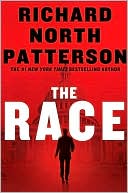


C. Stephen Baldwin’s SHADOWS OVER SUNDIALS
C. Stephen Baldwin’s SHADOWS OVER SUNDIALS
I love New York. People here are fascinating. I start a discussion with someone and he or she turns out to have a dazzling, heart-palpitating personal story of love and loss, victory and humiliation, exalted communion and dark nights of the soul. Is there no one in this glorious, feral, bursting city who is ordinary?
Many of my neighbors in my apartment building are like this: possessed of extraordinary life histories. A decade ago in Steamboat Springs, my former husband and I and our two children got trapped on the top of a mountain in a white out. We made it into the restaurant near the peak and sat at a table with hot cocoa. Our downstairs neighbor Stephen Baldwin skiied in, looking for the same warm respite. He’d been the one to recommend Steamboat to us, and he was there with some of his teenage kids and his wife.
The three of us–Stephen, my former husband, and I–fell to yakking, sharing anecdotes to pass the time. At one point I looked across the table and asked, “What is it you do at the United Nations, Stephen? I don’t think you ever told us.”
Stephen grinned and started to talk. His dad was JFK’s ambassador to Malaysia. Stephen himself, as a boy, was lost in the jungles of Peru and tattooed by head-hunters in Borneo; as a young man, he wrestled a Bengal tiger and ran with the bulls; as an adult, he set up an underground railroad for Bengali revolutionary leaders to escape a brutal Pakistani regime…. What unfolded was the tale of a brilliant and peripatetic soul who held a vision of the world as a community, and who was committed to world service. My former husband and I were spellbound. It wasn’t just the adventures, it was also the keen and wondering sense of curiosity, of observation, with which Stephen so deeply engaged his life.
“There’s a book here, Stephen,” I said finally. And he took me at my word, and wrote the book. SHADOWS OVER SUNDIALS Dark and Light: Life in a Large Outside World has arrived. I recommend it to everyone.
see Stephen’s website at www.cstephenbaldwin.com
Leverage
Money is good and I like it.
That’s one of my mottos. It has arisen out of my observation of the good uses of money: good health care, great education, travel that uplifts and inspires, the ability to charitably help others, good food, beautiful objects that enrich the environment and exalt the soul. Having abundant resources allows life to have a certain ease and facility that relieves stress and facilitates self actualization. Money gives free time in which art, sport, charity, and conviviality can be pursued. Money can be a great blessing.
It can also be a source of evil, cruelty, and pain. I’ve seen parents use it as a weapon against their own children, such as in families where one child is disinherited as an act of destructive communication; inevitably such acts cause lingering pain and bitterness. Parents who do that are always remembered through the taint of their unkindness. Money can be used as a drug to keep people dependent. It can be used to bribe, manipulate, or exploit people. Money is power in and of itself, and there will always be people who abuse power. This doesn’t even take into account what the lack of money causes people to do.
Money can also be used to make people feel special. I know a man who inherited great wealth, and was consistently helped by his mother before her death, so he never had to live exclusively on what he earned. Because he votes Democratic instead of Republican as so many recipients of ‘old money’ do, he cherishes a self image that he is profoundly ethically correct. He sees himself as morally right and superior all the time. Meantime, his family has fallen apart and he pays no attention to the disintegrated emotional bonds, how siblings don’t relate, his wife doesn’t talk to his son, his granddaughter wants nothing to do with her grandparents–because she saw them reject and act parsimoniously toward her little sister, after they had been loving and generous to her. But he is morally superior, because he’s rich and he still campaigned for Obama.
This isn’t the only example of the hypocrisy and self-delusion that money engenders. Living in New York, I have met a lot of Wall Street types. Bankers, brokers, and the wives of such. What struck me about so many of them (not all!) was how convinced they were that having a lot of money made them special. Especially the successful ones. The bigger their bonus, the more special they were. I suppose we all need to feel special and every human finds qualities about themselves to designate as special.
Having met so many Wall Street people, I can say categorically that Wall Street used to nurture a culture in which people prided themselves on being assholes. They were convinced that being an asshole was valid because they were so rich and successful. There was even a term some people used: “BSD,” which stands for “Big Swinging Dick.” They were proud of being BSD’s. I can remember a conversation I had with someone about a man who was then a partner at Goldman Sachs.
“He’s a jerk, his own wife has to take valium to go on vacation with him,” I pointed out.
“Who cares, he’s rich,” said the other person.
I would like to point out that, by all appearances, the man in question has reformed. He’s much kinder to his wife and has mellowed in the years since retiring from Goldman. Everyone can pursue better paths; each of us has the ultimate freedom to pursue our better self.
But there was definitely this swaggering, self-congratulatory arrogance about Wall Street. However much Wall Street helps Main Street, Wall Street was convinced that it was better than Main Street. That’s what the New York Times article this morning about the antipathy from Main Street toward Wall Street failed to mention: the air of superiority with which Wall Street indulged itself. We in Main Street tolerated it when Wall Street was helping us, even though we weren’t as stupid as Wall Street assumed: we KNEW that Wall Street was helping itself $100 for every $1 that it helped us. It’s that quality of condescension that has made us loathe Wall Street now, when our tax dollars are rescuing them from their runaway greed.
Which brings me to a great new TV show, LEVERAGE. It airs on TNT. It’s a Robin Hood show of the most satisfying kind. We get to watch greedy bankers, greedy real estate types, greedy corporate types of all kinds GET THEIR COMEUPPANCE. It’s a show for this moment, now. It’s enjoyable to see the greedy, selfish bastards take a fall.
Too bad it’s only a television show…..

Who do I read?
“Come with me if you want to live”
The Sarah Connor Chronicles
I can’t watch a movie or television show without analyzing for story. Occupational hazard. I wonder if dentists find themselves examining teeth when someone smiles at them, or if dermatologists inspect complexions of faces, however innocently, turned toward them. Somehow when your profession becomes deeply grafted into your identity, the profession becomes the lens through which you experience the world, people, events, and relationships. Writers are terminally infected with this. We’re always looking for raw material, for primary life experience, with which to create, and creation is the ultimate imperative.
The Internal Triangle, and the Failure of Psychotherapy
My neighbor upstairs, Lucy Holmes, has written an interesting book called “The Internal Triangle: New Theories of Female Development.” Lucy’s a smart lady and the book crackles with life and intelligence. It’s well-written and absorbing. She’s also set herself an ambitious goal: to use Freud’s drive theory to explain female development. The back cover explains that she’s the first woman to attempt this in over sixty years. I haven’t read a lot of Freud, but didn’t he theorize that women long to have penises, and that’s why women are all so messed up?
This despite the archetypal message of the blind prophet Tiresias, who spent seven years as a woman. He tells the gods unequivocally that a woman experiences greater sexual pleasure.
For me, the most arresting part of the book was the exquisite attention to transference and counter-transference as Holmes relates anecdotes about women patients from her many years as an analyst. Some of her patients idealized her, some hated her, many did both, some wanted to kill her, some wanted to have sex with her. In response, Holmes worries, is tormented and feels inadequate. She wants to help them. Does she?
It threw me back into my years as a hands-on healer, and my years in therapy. When you lay hands on people’s bodies with love and the intention to heal, miracles happen. So does powerful transference. And wicked strong countertransference. A practicing healer has to be on her edge, standing with her toes touching the line every second. I made some big mistakes in my practice when I wandered off that edge.
And because we are all human, mistakes, blunders, errors, and inadequacies happen. A decade of my personal psychotherapy imploded in heartache when I divorced my first husband. My therapist was also my husband’s therapist, and our marital therapist, and it was all too fuzzy and intertwined. And when the negotiations between my ex and me grew contentious, I wrote a letter to the therapist saying it wasn’t right for me that my therapist was counseling someone with whom I might go to court. It was something I had to do to stand up for myself. She didn’t write back but she must have agreed, because she terminated her work with him. Of course, he blamed me. A lot of hurt and pain here, for everyone.
Which brings me to qualms about conventional talk psychotherapy. Does it really work? Can it? Therapists are all too frail and prone to err, even with the best of intentions. And, of course, therapists make their living through people showing up regularly, once or twice or three times a week. They have an investment, acknowledged or not, in their patients’ ongoing mental unhealth. Too many patients feed their therapists’ investment, falling into what Caroline Myss so aptly calls ‘woundology,’ cherishing their suffering. They don’t move on. They start every conversation with, “My therapist says….” Don’t we all know people like that?
And my most serious criticism of psychotherapy is that, largely, it doesn’t turn people into better human beings. Here is a the beginning of an imaginary, all too likely, session:
Therapist: “So, you’re an ax murderer, you lure innocent people into the woods where you chop them into little pieces. How do you feel about that?”
Accountability is anathema to psychotherapy. What modern psychotherapy has contributed to the zeitgeist, the way it is largely practiced, is the demolition of judgment and accountability. What psychotherapy should do is teach people how to hold their feelings without acting on them, and without shattering. If human beings can feel a range of emotions from -10 to +10, and can perform actions on a decency scale from -10 to +10, (-10 is genocide, +10 is risking or giving your own life to save someone else’s), then psychotherapy should help people feel and contain their feelings on the full scale, but limit their actions to, say, -2 to +10. But that’s not what’s happened. People who feel below -2 and over +3 are put on medications. And censoring actions is considered bad form.
We’ve become a culture, thanks partly to modern psychotherapy, that confuses prejudice with judgment. The pendulum has swung that far as we try to dismantle millennia of discrimination on the basis of gender, race, religion, sexual orientation. Discrimination is a great evil that I hope to see largely dissolved in my lifetime–though I probably won’t.
And judgment is still imperative. There are reasons why so many of the great, ancient, spiritual texts say, “Thou shalt not.” We need to be able to say, “That action is not okay!” The higher octave of discrimination is discernment, the wisdom to separate the chaff from the grain. Despite the moral relativism of psychotherapy, there is still chaff, and it differs qualitatively from grain.



